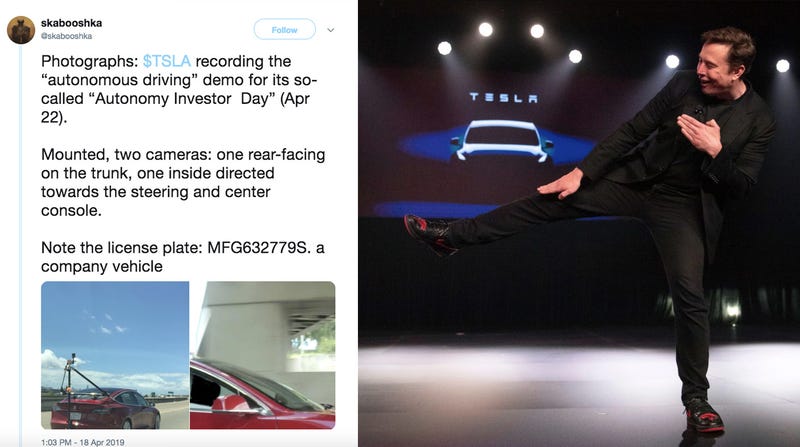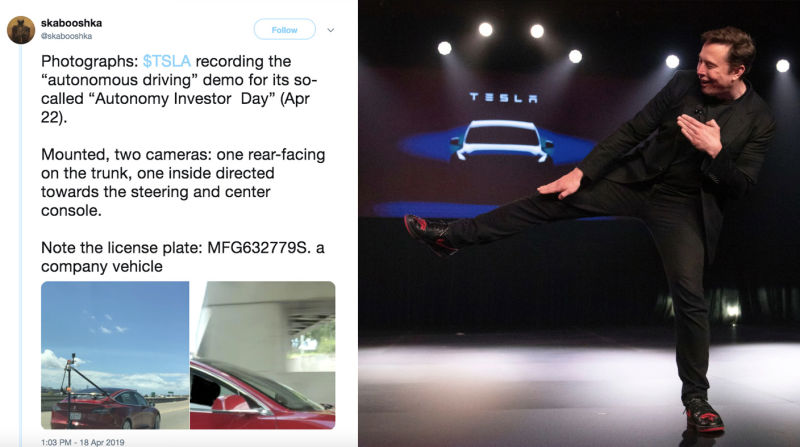
If his acolytes are any guide into his psyche, Elon Musk operates in a binary universe. You’re either with him in his quest to rid the world of gas-guzzling transportation and usher in a new era of environmentally sustainable energy, or you’re against him.
Who are the people not on his side, exactly? There was the Big Oil conspiracy and the media. But one of the more consistent through-lines in his conspiratorial thinking has been short-sellers.
Unlike the Big Oil conspiracy or a media cabal hellbent on making Musk squirm, Tesla short-sellers are a real thing (it is, in fact, the very example SEO maven Investopedia uses to illustrate what short-selling is: “For example, if an investor thinks that Tesla (TSLA) stock is overvalued at $315 per share…”). They believe Musk or Tesla as a whole to be a fraud, poised for a massive market collapse.
But some of Tesla’s short-sellers are activist investors who seemingly dedicate inordinate energy to publicizing Tesla’s supposed fraud. In theory, this would be against their self-interest, as the greater the stock plummet, the more profitable the short.
In any case, Musk appears convinced short-sellers are the source of Tesla’s volatile stock price, more so than the actual decisions Elon Musk makes—such as setting an arbitrary and impossible price point for an electric car which the company has repeatedly failed to sustain—but it is certainly true that some number of short-sellers exist.
Advertisement
The short-sellers’ insistent and vocal presence on Twitter, Musk’s preferred communication platform, lends him access to the only truly sustainable energy source available at the moment: the human mind’s ability to extrapolate a vast conspiracy from the desperate actions of a few individuals.
Over the weekend, the whole short-seller thing got even weirder. Tesla filed a restraining order against one such self-professed short-seller, Randeep Hothi, as first spotted by the website PlainSite.org.
Hothi tweets from the account @skabooshka and allegedly followed and allegedly harassed Tesla employees driving in a Model 3 with a camera rig. I mean, he definitely followed it, because he tweeted photos from his account, but the company alleges in the restraining order that he endangered the lives of the Tesla employees by driving erratically to snap photos of the rig.
Advertisement
Shortly after the restraining order was filed, Musk replied to a 2018 tweet which posted a link to an image that makes some Galaxy Brain connections between Hothi and Volkswagen.
This account almost exclusively follows other people with “Tesla” in their bios and has sent only this one tweet. Nevertheless, it “confirmed” a grand conspiracy, one linking a short-seller to Volkswagen… somehow, thus linking the Big Oil and short-seller conspiracies into one. Diabolical!
Advertisement
It gets even weirder. The Verge reported that another Tesla short-seller that Musk had previously doxxed, who went by the Twitter handle @MontanaSkeptic and is named Lawrence Fossi, started a GoFundMe for Hothi’s legal defense, which as of this writing has raised more than $82,000.
Advertisement
The truly delicious part about all of this is how Musk’s ideas about a secret faction of global short-sellers fixated on destroying his environmentally sustainable energy ambitions have resulted in actions that, as CEO of a major auto manufacturer, resulted in dozens of people around the world convinced the company is run by a volatile man-child and will plummet in value as a result. Paradoxically, Musk has brought about a benign but real form of the very conspiracy he imagined.
In other circumstances, I might posit that perhaps Musk is the diabolical one himself, and this is all an ingenious ploy of his making to explain away his company’s stock ups-and-downs. This is the problem with conspiracy theories. You can always go deeper into the rabbit hole. Just ask Elon Musk.













